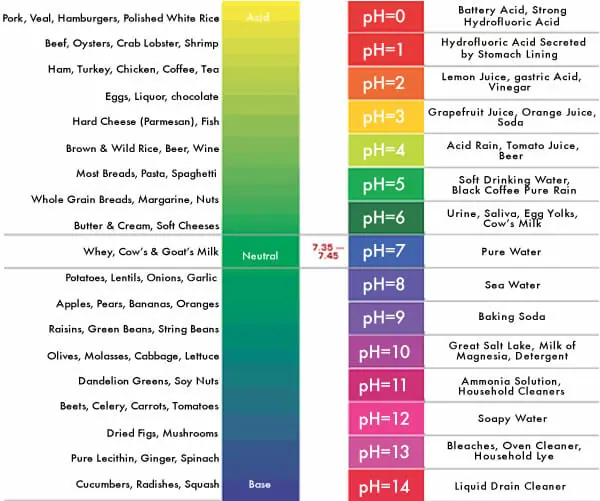If you are considering investing in a reverse osmosis system for your family, you may have seen many articles, videos and blogs discussing how healthy reverse osmosis water is. Perhaps you have learned that reverse osmosis water is acidic, or that the reverse osmosis process will remove healthy minerals from the water.
In fact, these statements are misleading and depict an inaccurate reverse osmosis system diagram. In fact, the reverse osmosis process will not make the water unhealthy in any way – on the contrary, the benefits of purification can protect you from many water borne pollutants.
Continue reading to better understand what reverse osmosis is; How it affects water quality; And how it affects your body and health.
Is reverse osmosis water acidic?
Yes, it is slightly more acidic than purified water, and the pH value of purified water is about 7 – 7.5. Generally, the pH of water produced by reverse osmosis technology is between 6.0 and 6.5. Coffee, tea, fruit juice, carbonated drinks, and even milk have lower pH values, which means they are more acidic than water from the reverse osmosis system.
Some people claim that reverse osmosis water is unhealthy because it is more acidic than pure water. However, even the EPA water standard stipulates that water between 6.5 and 8.5 is healthy and safe to drink.
Many claims about the “danger” of RO water come from supporters of alkaline water. However, although many alkaline water lovers claim that alkaline water can support your health, the Mayo Clinic points out that there is not enough research to confirm these claims.
Unless you suffer from gastric acid reflux or gastrointestinal ulcer and other diseases, it is best to treat them by reducing acidic foods and beverages, otherwise there is no scientific evidence proving that reverse osmosis water is harmful to your health.
Can reverse osmosis water remove healthy minerals from water?
Yes and No. Although the reverse osmosis process does remove minerals from drinking water, these minerals are unlikely to have any lasting impact on your overall health.
Why? Because minerals in drinking water are unlikely to have a significant impact on your health. On the contrary, vitamins and minerals from the diet are more important.
According to Dr. Jacqueline Gerhart of UW Health Family Medicine, “Removing these essential elements from our drinking water will not cause too much problems, because a comprehensive diet will also provide these elements.” She said that only those who “don’t eat a diet rich in vitamins and minerals” are at risk of vitamin and mineral deficiency.
Although reverse osmosis can indeed remove minerals in water, it can also remove harmful chemicals and pollutants, such as fluoride and chloride, which are included in the list of common water borne pollutants by the Water Quality Association. If these pollutants are consumed continuously for a short period of time, they may cause chronic health problems, such as kidney problems, liver problems and reproductive difficulties.
Other water borne pollutants removed by reverse osmosis include:
- Sodium
- Sulphates
- Phosphate
- Lead
- Nickel
- Fluoride
- Cyanide
- Chloride
Before worrying about the minerals in the water, ask yourself a simple question: Do I get nutrition from the water I drink or from the food I eat? Water nourishes our bodies and is vital to the normal functioning of our organs – but the vitamins, minerals and organic compounds we need to live a healthy life usually come from the food we eat, not just the water we drink.
Is the drinking water from the reverse osmosis filtration system harmful to my health?
There is little proven evidence that RO water is harmful to your health. If you eat a balanced diet and have no serious gastric acid reflux or gastrointestinal ulcer, drinking reverse osmosis water will not affect your overall health and well-being.
However, if you do need higher pH water, you can use reverse osmosis systems with optional filters that add minerals and electrolytes. This will increase pH and help reduce the effects associated with conditions that are exacerbated by acidic foods and beverages.
Post time: Nov-24-2022

